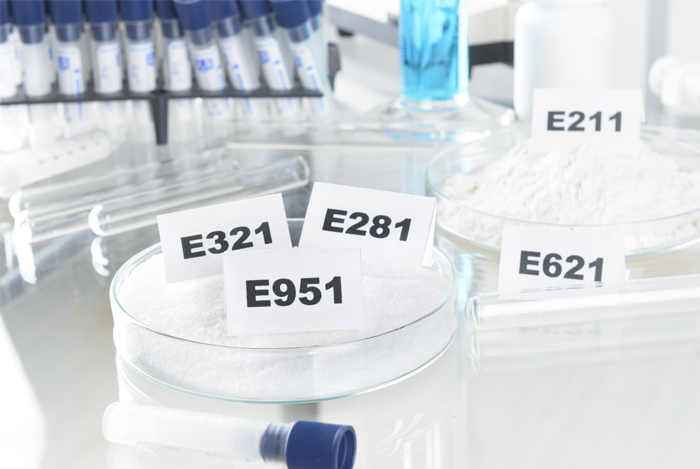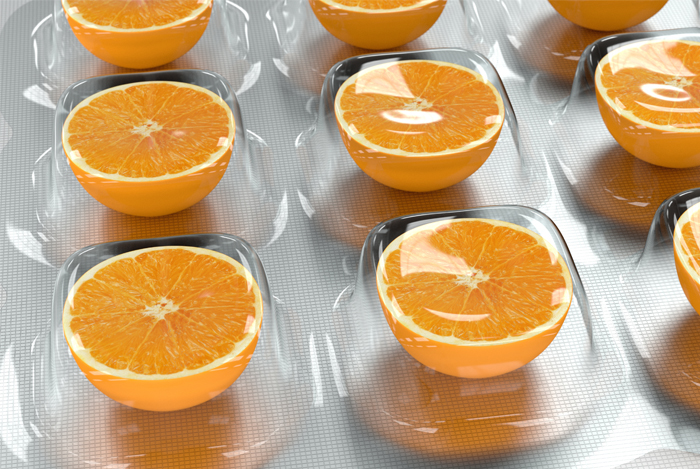Admit it: sometimes, you eat food without even taking a peek at the nutrition label on the back.
And when you finally do look at what’s on the label, your draw drops in horror – that’s what you’ve been eating?!
All those ingredients with all those hard-to-pronounce names are pretty scary, to be honest. Many of them are preservatives that are meant to keep our foods around far longer than what nature intended.
But are they really bad for your health? Are health gurus who demand we stay away from them at all costs correct?
Today, we’re going to find out what purpose those preservatives serve and what health effects they can have on your body.
What are Preservatives?

Preservatives are a type of food additive that are added to food to prolong shelf life. This can involve many things, which include:
- The reduction of spoilage caused by bacteria and other germs.
- The preservation of flavor by preventing the fats and oils from going bad.
- The prevention of fresh fruits turning brown when they are exposed to air.
There are three categories of preservatives:
Natural – These include salt, sugar, alcohol, vinegar, and others. They’re traditional preservatives found in foods that are often made in the home, like pickles, jams, juices, etc.
Chemical – These have been used for only a few generations, and seem to be the most effective tool we have for preserving foods. They include benzoates (such as sodium benzoate), nitrites (such as sodium nitrite), sulfites (such as sulphur dioxide), and sorbates (such as potassium or sodium sorbate), and ethanol.
Artificial – These are chemical substances that stop the growth of bacteria and delay spoilage and discoloration. They can either be added to the food or sprayed onto it. They include antimicrobial agents, antioxidants, and chelating agents.
Preservatives work because of their acidic nature, which makes molds, yeast, and bacteria unable to grow in the food.
Many processed foods contain preservatives. These foods have been linked to countless health issues over the past few decades, and some researchers believe it’s because of their preservative content.
Because of their strange names and questionable qualities, preservatives have come under a lot of public scrutiny. This had led to some extensive regulation by governments across the world.
Regulation of Food Preservatives

Americans spend huge amounts of money every year on processed foods, which have been treated, stripped, altered, or refined in some way before they reach the consumer. Practically all of these foods contain additives like preservatives.
However, the idea of using certain ingredients to artificially preserve foods has not always been popular with consumers.
The Pure Food Act was created by the populist movement for safe and wholesome foods, which also created the Meat Inspection Act. As a result, the federal Food and Drug Administration (FDA) regulates the use of preservatives in the United States.
The FDA has a list of food additives that are “generally recognized as safe” (GRAS). A large number of them have not been tested, but scientists say they seem to pose no known threat.
Some substances on the list are known to be harmful, but are still allowed as long as they are limited to below a 1/100th amount of the level that is considered harmful.
That’s why the FDA recommends people with allergies or food intolerances should always check the ingredient list on their food labels.
Negative Health Effects of Preservatives

This isn’t one of those cases where fringe or alternative groups warn against something just because it seems scary. There are real negative side-effects of consuming preservatives.
For instance, the nitrites found in processed meats are strongly linked to an increased risk of cancer in the digestive tract.
However, when such preservatives are found naturally in foods like vegetables, they don’t seem to have such an effect.
It can be difficult to pin down how preservatives damage our bodies. But, because of the widespread use of preservatives, researchers now understand certain risks posed by preservatives, such as:
Cancer
The National Toxicology Program reports that propyl gallate, a preservative used to stabilize cosmetics and foods that contain fat, can cause tumors in the brain, thyroid, and pancreas.
An organization called InChem, which provides peer-reviewed information on chemicals and contaminants, has also noted the cancer-causing effects of some preservatives.
Nitrosames, like nitrates and nitrites, can lead to the development of cancer-causing compounds as they interact with natural stomach acids.
Cardiovascular Damage
InChem reports that some people may experience damage to their hearts as a result of exposure to preservatives.
Sodium nitrates, for example, can cause blood vessels to narrow and become stiffer.
Nitrates can also affect the body’s ability to process sugar, and could lead to the development of diabetes, according to the Harvard School of Public Health.
Childhood Hyperactivity
The preservatives found in your food may even affect the way children develop and interact with their environments.
A study published in 2004 in “Archives of Disease in Childhood” found a significant increase in hyperactive behavior when 3 year-olds took benzoate preservatives. Children involved in the study also showed a decrease in hyperactive behavior once they’d stopped taking the preservatives.
Toxicity
The preservative Butylated Hydroxyanisole (BHA) helps preserve fats and oils in food and cosmetics.
The FDA has labeled BHA as GRAS, but the National Toxicology Program concluded that BHA has the potential to be carcinogenic. Various studies link it to increased risk of cancer.
The fact that these preservatives are still so commonly found in our foods isn’t very encouraging, is it? Who knows what other negative health effects are caused by preservatives that haven’t even been studied yet.
However, you can be sure that they aren’t injected into our food for no reason at all. Most preservatives serve a real purpose, and do so fairly successfully.
Benefits of Preservatives

One of the best reasons for why preservatives are so common in our grocery stores is because, well, they work.
Some people in the United States have the perception that food-borne illnesses happen more often in other countries. While this may be true, hospitalizations, illnesses, and deaths are still high in this country.
The CDC estimates that approximately 76 million illnesses, 325,000 hospitalizations, and 5,000 deaths are caused each year by food. Known pathogens like Salmonella, Listeria, and Toxoplasma are responsible for many of these, while unknown agents account for the rest.
That’s where preservatives come in. Many of these exist for the sole purpose of combating these pathogens.
And there are quite a few preservatives that we definitely don’t need to be worried about.
Ascorbic acid – Also known as vitamin C, ascorbic acid is found naturally in many fruits and veggies. It’s an antioxidant that protects the body from dangerous free radicals. Ascorbic acid is approved by the FDA, and is used to prevent food spoilage in a wide range of food products.
Aspartame – Once thought to be linked to cancer, the FDA has re-approved its safety after conducting extensive research into its health effects. It sometimes goes by the name NutraSweet or Equal, and is up to 220 times sweeter than natural sugar.
Taurine – Taurine helps maintain the water and electrolyte balance of blood. It’s naturally found in meat, fish, and breast milk, and in many popular energy drinks. Researchers suggest that up to 3,000 milligrams a day of taurine is safe.
Nisin – Used for its anti-bacterial properties, this preservative is considered natural and safe to eat. Nisin is used in meat and poultry products, cheese, eggs, and salad dressing.
As for the rest, we have to realize that we live in a world where science is always moving forward and finding out more information about what’s in our food.
Sometimes, preservatives do exactly what they’re supposed to, and other times they have truly nasty side-effects.
Can We Live Without Preservatives?

There’s a solid chance that preservatives will continue to play a role in our food preparation for the near future. Because our world is becoming connected on such a global level, food production needs to meet the challenge of long distance transportation in order to be safe for you to eat.
As a result, you may be hard-pressed to remove preservatives from your diet altogether. However, it is possible to reduce their intake to avoid chronic health conditions in the public.
New processing techniques like flash freezing and hermetically sealed containers address some of these challenges. Food treated this way often does not need the help of chemical or artificial preservatives to stay fresh and healthy.
Irradiation, also known as cold pasteurization, helps preserve foods that are susceptible to mold and pests, which reduced the need for expensive product preparation.
Hydrogen peroxide is often used effectively as well as a food preservative to keep bananas and other fresh fruits and vegetables safe before they ever reach the grocery store.
And if you incorporate more fresh and organic fruits, vegetables, whole grains, lean grass-fed meats, and low-fat dairy into your diet, you’ll affectively reduce your own preservative intake. You can also read the labels on packaged foods to identify whether they contain nitrates, benzoates, propyl gallates, or other harmful preservatives.
Eventually, we may reach the point where certain dangerous preservatives are entirely unnecessary for long shelf lives. Or, we may discover new forms of food preservation that can’t possibly lead to any negative health effects.
Until then, please be careful about what foods you put into your body.
What do you think about food preservatives? Leave your thoughts in the comments below!
The post The Health Effects of the Common Preservatives Found in Your Food appeared first on Nutrition Secrets.
http://www.nutritionsecrets.com/the-health-effects-of-the-common-preservatives-found-in-your-food/
No comments:
Post a Comment